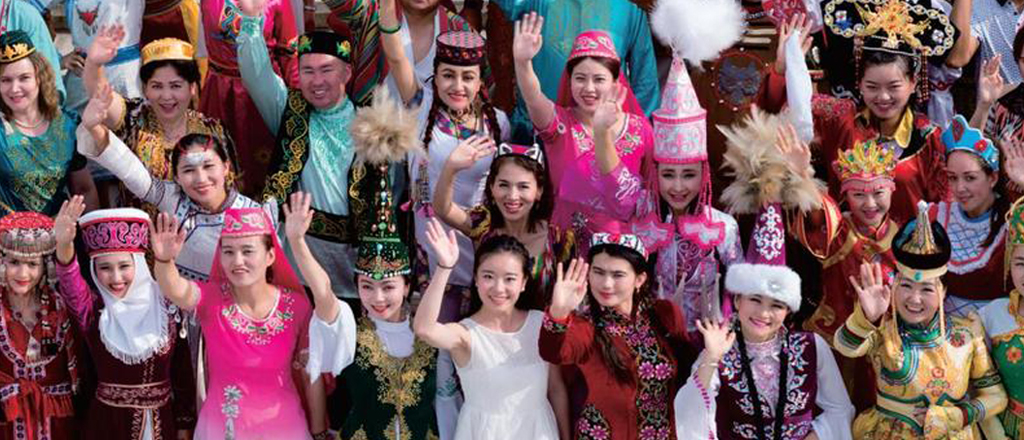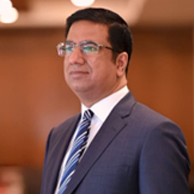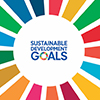Minorities in China: An Exploration of Ethnic and Religious Diversity

Introduction
China is a remarkably diverse nation, home to approximately 56 ethnic groups and various religious communities, all enjoying equality, diversity, and freedom and actively contributing to the country's development. The philosophy of "To be harmonious but different" serves as the foundation for the peaceful coexistence of numerous religions and ethnicities within China. Each ethnic group and religious community has its own distinct culture, language, and traditions. This diversity, while a rich aspect of China's identity, ensures social harmony and inclusive development.
Governance Strategy
China's Communist Party leadership emphasizes stability, unity, and economic development as cornerstones of its governance strategy. China is dedicated to encouraging peaceful coexistence among all ethnic groups like one family, protecting freedom of religious belief in accordance with the law, and promoting high-quality economic and social development in line with people's livelihoods. President Xi Jinping spoke during the National People's Congress (NPC) annual session last year and emphasized ethnic unity and efforts to create a strong sense of community for the Chinese people. He said that as long as all ethnic groups in China remain unified under the leadership of the Party, all hardships and obstacles on the path ahead will be tackled, and urged efforts to aid all ethnic groups in tightly unified "like the seeds of a pomegranate that stick together" in the process of jointly developing the great motherland.
Economic and Social Development
We have witnessed great achievements in economic and social development in the whole of China, and the people of all ethnic groups share the benefits of development, particularly that under the guidance and protection of China's ethnic and religious policies, people of all ethnic groups live together in harmony, also carry out religious activities, and all ethnic cultures have been well preserved. The People's Republic of China promotes fairness, brotherhood, and shared prosperity for every ethnic group as essential requirements for regulating ethnic diversity and managing ethnic relations. China has prioritized ensuring and promoting people's well-being, advancing numerous projects, and sharing the rewards of reform and development with people of all ethnic groups.
Under the unified leadership of the Communist Party of China, the government provides the development process of integrating all aspects of different ethnic groups: the integration of economic and social development (common prosperity and development); equal protection of all ethnic groups' language and cultural rights; political participation, economic and social development, and the guarantee of language and cultural rights; while guaranteeing the rights of ethnic minorities; and a strong sense of national cohesion and social solidarity of all ethnic groups, based on the calmness of the Chinese people with the ideas of solidarity, equality, cooperation, and integration.
The Outline for Poverty Alleviation and Development in Rural China 2001 - 2010, The 13th Five Year Plan for Promoting the Development of Ethnic Minority Areas and Ethnic Groups with Small Population, have been implemented and executed to promote economic growth, poverty alleviation, and social stability among ethnically dominated areas. During the Beijing 2022 Winter Olympics, One of the most ethnically diverse national teams played cross-country skiing, belonging to various ethnic groups, including Han, Tibetan, Kazak, Uygur and others.
China has implemented a system of regional autonomy for its ethnic minority groups, primarily through the establishment of autonomous regions, prefectures, and counties. This approach is anchored in the Chinese Communist Party's ideology of promoting national unity while fostering cultural diversity. The concept of regional autonomy aims to grant minority groups a degree of self-governance, allowing them to manage their local affairs, promote their languages and cultures, and address economic disparities.
The Chinese government continues to explore and strengthen specific forms of implementation of the system of regional ethnic autonomy, improve supporting laws and regulations for the Law on Regional Ethnic Autonomy, continuously strengthen the material basis for the implementation of the system of regional ethnic autonomy, and promote all-round economic and social development.
President Xi Jinping and his team are working with full efforts under the guiding principles of socialism with Chinese characteristics for a New Era of more rights for all ethnic and religious communities. The founding spirit of the Communist Party of China (CPC) is staying united and becoming stronger, upholding core principles while embracing new ideas, China is moving forward with determination and strength. With unity and determination, dedicated to building a modern socialist nation in every way and contributing towards the great integration of the Chinese nation on all fronts. Chinese leadership policies targeting poverty alleviation, infrastructure development, and education opportunities for minority populations contribute to inclusive economic advancement.
Conclusion
Mutual learning is an essential requirement for numerous faiths to coexist in China. People of the Chinese nation have historically managed to transcend ethnic and religious groups and have been bonded for thousands of years through cultural identity.
Multiple religions in China aspire to "a harmonious world where everyone appreciates and shares each other's beauty" through peace and inclusiveness. China has long promoted mutual learning and embrace harmony. China has never used force to impose its values or sought hegemony.
Mr. Khalid Taimur Akram is a renowned expert of International Relations. He has the unique honour of being declared as “Best IR Expert” by Communication University of China, Beijing in year 2021 & 2022. HE is also the receipt of the highest literacy and “Oltan Qalam”, which was bestowed on him by the government of Republic of Uzbekistan, in year 2022. He was also declared as the “Best Writer” in Republic of Azerbaijan. Currently, he is Director of International Academic Network for a Community with Shared Future (IAN-CSF) at Communication University of China in Beijing. He is working as expert with various think tanks those in Pakistan, China, Turkey, Romania, Hungary, Belarus, Russia, Uzbekistan, Kazakistan, Tajikistan, Kyrgyz Republic and Indonesia. He also had been overseeing the Electoral process in many countries as “International Election Observer”.







